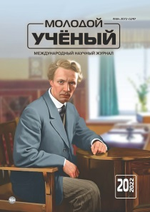This article analysis the current state of reforms in the system of higher education, analysis of legal documents on higher education, the work carried out by the state to expand the needs of young people in learning a foreign language.
Keywords: education, integration, reforms, citizens, science, continuity, scientific and experimental, scientific research, education, modern, normative legal document.
В данной статье рассматривается современное состояние реформ в системе высшего образования, анализ нормативно-правовых документов о высшем образовании, работа, проводимая государством по расширению потребности молодежи в изучении иностранного языка.
Ключевые слова: образование, интеграция, реформы, граждане, наука, преемственность, научно-экспериментальный, научные исследования, образование, современный, нормативный правовой документ.
In recent years, President of the Republic of Uzbekistan Sh. Mirziyoyev has been paying serious attention to reforming the education system, radically improving the quality of training, in particular, the application of the experience of developed countries in the system, the teaching of foreign languages. Today, our country is firmly on the path of further deepening democratic reforms. As in all areas, the issues of reforming the education system have always been in the focus of the President's attention. In accordance with the requirements of the times, the head of our state Shavkat Mirziyoyev has set an urgent task to create an effective system for the selection and training of innovative, responsible, enterprising, well-educated, patriotic and honest personnel [2].
A number of reforms are being carried out in the Republic of Uzbekistan to build a democratic state and civil society. In the effective implementation of these reforms, special attention is paid to improving the education system, the widespread introduction of modern technologies in this area. The fact that the «Development Strategy» [1] for 2022–2026 also includes issues of radical improvement of education is a clear proof of our opinion. As in all areas, many decrees have been adopted aimed at radically improving the education system and science. Attention is paid to general aspects related to the introduction of new innovations in the field, teaching foreign languages, learning experiences, supporting creative approaches, strengthening the process of integration between types of education [3].
Introduction of innovative advanced and international educational standards in the educational process along with the teaching of foreign languages in many higher education systems, capacity building and incentives for teachers, equipping them with modern information and communication technologies, credit-module system of teaching and assessment of students' knowledge Particular attention is paid to improving the methods of expanding the knowledge of students, teachers and independent researchers of higher education institutions on the basis of world educational resources. Of course, a good teaching of foreign languages plays a special role in this. At present, our country has set the task of more sustainable development of each sector, a sharp increase in competition, in the implementation of which our citizens are required to have a deep modern knowledge and high skills in foreign languages. Consistent implementation in the life of the society requires the implementation of large-scale and in-depth reforms in the national education system as well to train specialists with modern knowledge and excellent skills. Today, not only English but also foreign languages are taught in higher education institutions by professors on the basis of video lessons, audio lessons, e-books, teaching materials published in foreign languages, which serve to increase the effectiveness of national education systems. As noted by President Sh. Mirziyoyev, serious changes related to «digitalization» in the field of education are expected in the near future. E-learning is a system of education based on information and electronic technologies. This type of education includes personal mastering of e-learning materials using information and communication technologies, remote consultation by teachers, assessment of their knowledge and so on. At the same time, teaching materials and assignments for distance learning of professors and teachers of higher education institutions are posted on the website of the higher education institution and monitored. Provide our citizens with the opportunity to receive secondary special and higher education in all specialties and specialties at a distance, including the use of e-learning systems of foreign higher education institutions, including the creation of electronic textbooks, manuals, special interactive programs, videos, literature in foreign languages and the establishment of a special public institution to accelerate the certification of each of them and the full support of its activities is a modern requirement [4].
This will raise the education system to a qualitatively new level. Consequently, with high civic and professional potential, it allows to train modern specialists. If the new generation of textbooks and manuals are written in the Latin alphabet, Russian and English in three languages, foreign scholars and specialists will be able to get acquainted with these textbooks. Of course, as mentioned above, if digitization is placed on every Higher Education website and platform, it will be possible to get acquainted with the newly published literature, and the world's leading educational institutions will be able to get acquainted with it. In this way, we will be able to use the created electronic textbooks, manuals, special interactive programs, video materials in foreign languages in the process of distance learning.
In short, in order to save state budget funds by eliminating regional and time barriers to education, it is necessary to organize in-depth study of foreign languages in all higher education institutions with the wide involvement of qualified professors and teachers of prestigious higher education institutions in distance learning. is one of the current tasks.
References:
- https://lex.uz/docs/5841063
- https://www.gazeta.uz/uz/2016/12/07/speech/
- https://www.lex.uz/docs/5431845
- Ўзбекистон Республикаси қонун ҳужжатлари тўплами, 2017 й., 6-сон, 70-модда, 20-сон, 354-модда, 23-сон, 448-модда, 37-сон, 982-модда; Қонун ҳужжатлари маълумотлари миллий базаси, 31.07.2018 й.,







